President to Veto Legislative Package on Rules of Selection of Candidates for CEC Chairmanship, Professional Membership
COMPILED BY ANA DUMBADZE
According to the Administration of the President of Georgia, the President will veto the legislative package relating to the rules of selection of candidates for the Central Election Commission chairmanship and professional membership, if adopted.

The matter concerns the legislative changes that will give the Chairman of Parliament the prerogative to present candidates for chairman of the CEC and members of the CEC to Parliament instead of the President.
The President's Administration notes that one-party appointments are against statehood and the country’s European future.
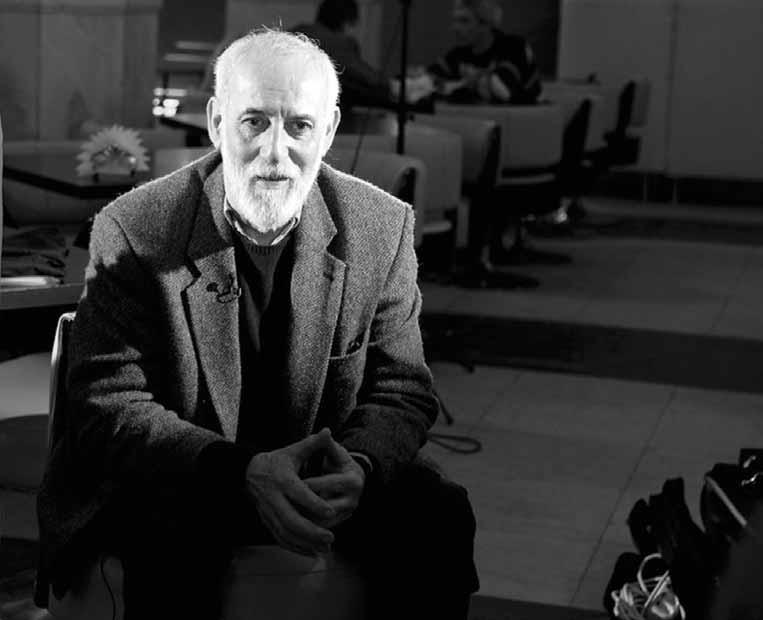
The Administration released a statement, where it is mentioned that the President is guided by the degree of their independence and impartiality during the selection of candidates and does not question their qualifications.
“For the third time, the ruling majority is changing the laws because the President did not present the candidates they wanted for specific positions.
In this week’s issue...
Russia Cancels Visa Regime for Georgian Citizens, Reopens Direct Flights
NEWS PAGE 2
Ukraine Updates: Russian Unit Flees Bakhmut Post


NEWS PAGE 3
Russia, the South Caucasus and the Pursuit of Dominance
POLITICS PAGE 6
Terabank in partnership with Visa launched the Most Flexible and Secure International Payment Platform Visa B2B Connect for the First Time in Georgia
BUSINESS PAGE 8
Your Life Is in Your Hands – Georgian Youth Fight to Raise Standards in their Communities with USAID, PH International and MCK Support
SOCIETY PAGE 9
On the Positivity of Wings for Life and 2023’s Three Georgia Winners
SPORTS PAGE 10
PreparedforGeorgiaTodayBusinessby
Issue no: 1398 • • MAY 12 - 18, 2023 • • PUBLISHED WEEKLY
PRICE: GEL 2.50
Continued on page 4
Image source: Netgazeti
FOCUS ON MANEUVERING AT THE CROSSROADS
Donald Rayfield. Photo by Dmitry Rozhkov
PAGE 7
Donald Rayfield on Georgia’s political leanings, surviving Putin, and the Church’s power over progress
Russia Cancels Visa Regime for Georgian Citizens, Reopens Direct Flights
Bidzina Ivanishvili, Georgian Dream, the Georgian government has been pursuing in the country in recent months, after the Russian invasion of Ukraine. This is an anti-Western, anti-Ukrainian policy,” MP Khatia Dekanoidze claimed Wednesday.
Meanwhile, MP Tinatin Bokuchava, a member of the UNM, noted that there is a pro-Russian force in the government of Georgia, and as such, Putin's decision is logical:
"The occupant country does not consider Georgia as a hostile state because it is clear to everyone that today there is a pro-Russian force in the government of Georgia, and this is confirmed by a number of facts," she stated, highlighting not only the cancellation of the visa regime for Georgian citizens, but also the anti-Ukrainian policy of the Georgian government, anti-Western messages, etc.
Image source: commonspace
COMPILED BY KETEVAN SKHIRTLADZE
Russian President Vladimir Putin has lifted visa and travel restrictions on Georgian citizens that have been in place for a number of years. He signed a decree on Wednesday easing travel restrictions, meaning that, from May 15, citizens of Georgia will be able to visit Russia for up to 90 days without a visa, as long as they’re not in the country for work.
Putin also lifted a ban on Russian airlines carrying out direct flights between the countries, as well as a ban on the sale of tours to Georgia, that had been in force since 2019.
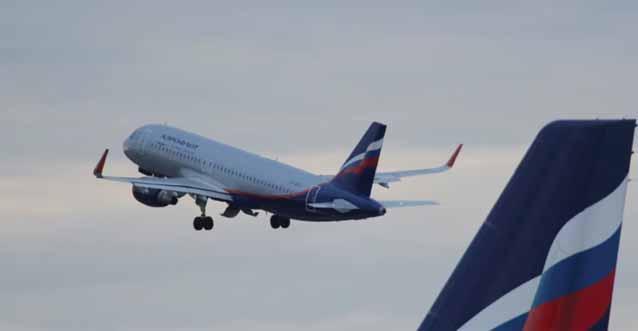
Russia’s visa regime for Georgia was introduced in 2000, due to “the risk of terrorism,” with Russia claiming that thousands of refugees and fighters had fled from Chechnya to Georgia.
Then, in 2008, diplomatic relations between the two countries were severed by Tbilisi following Russia’s recognition of the pro-Russian breakaway regions of Abkhazia and South Ossetia.
Still, Georgia lifted visa restrictions on Russian citizens in 2012, allowing them to stay in the country for up to 90 days with then-President Mikheil Saakashvili seeing the move as a way to improve relations between the countries.
Russia’s relationship with Georgia has become more nuanced in recent years.
Georgia’s ruling Georgian Dream party has been accused of pro-Kremlin sympathies and has been keen to appear neutral when it comes to the war between Russia and Ukraine.
But Georgia’s President Salome Zurabishvili said on Wednesday that Russia’s restoration of visa-free travel and the lifting of a ban on direct flights was “unacceptable” as long as Moscow continued its invasion of Ukraine.
THE REACTION OF THE PRESIDENT OF GEORGIA
“Another Russian provocation!” is how the President of Georgia Salome Zurabishvili responded to the resumption of direct flights to Georgia by Russia and the cancellation of the visa regime.
"Resuming direct flights and lifting the visa ban with Georgia is unacceptable as long as Russia continues its aggression on Ukraine and occupies our terri-
1st Mediterranean Film Festival
tory!" she tweeted.
"It is inappropriate, untimely, we do not need to cancel visas, nor restore flights, since Russia is an aggressor for the whole world and since it is the occupier of our territories," she added. She called on the government to make their position clear.
"It is time, as I have repeatedly said, for the Security Council to meet in public and discuss a three-month visa requirement for Russians, a necessity given our domestic challenges. More control is needed from the state over those Russians who enter the country, who stay in the country, and it is necessary to take some measures so that all this falls into a normal, civilized framework," Zurabishvili said.
"REAWARD FOR ANTI-WESTERN POLICY" — OPPOSITION ON THE CANCELLATION OF THE VISA REGIME WITH RUSSIA
Part of the Georgian opposition parties state that they consider Russia's cancellation of the visa regime for Georgian citizens as a “reward” for the Georgian government's anti-Western policy.
"Putin's decision is a reward for the Georgian government for the policy that
RESULTS, AND THE RESULT IS THAT IN GEORGIA TODAY WE DO NOT HAVE A SECOND FRONT
Irakli Kobakhidze, the Chairman of Georgian Dream, stated on Imedi TV that he remembers the time when Russia removed Georgia from the list of hostile states and this too was followed by indignation from the radicals.
The 1st Mediterranean Film Festival will open its doors for the Georgian public on Tuesday, May 16, 2023, in Amirani Cinema Hall. On the initiative of their accredited embassies to Tbilisi, six countries of this beautiful part of the world (France, Greece, Israel, Italy, Spain and Türkiye) will showcase, for 6 days, through their selected movies, stories of the unique
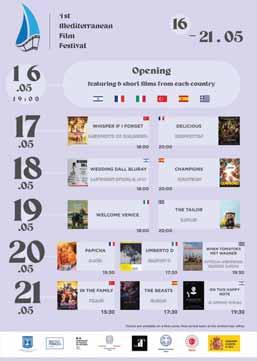
Mediterranean lifestyle, culture, traditions and customs.
The festival will kick off on Tuesday May 16 at 19.00, with a collage of 6 short movies, and will last until Sunday May 21, with two movies per day during weekdays and 3 films per day during the weekend. Admission is free for the public. Tickets are available on-a first come
rst serve base at the Amirani box office (36/1 Merab Kostava Street).
"The loyalty of the Georgian Dream was appreciated by Putin's regime. This is direct evidence that there is a connection between them. They are doing this in order to inspire us for membership of the Eurasian Union rather than the European Union," said Giorgi Vashadze, the leader of the Strategy Agmashenebeli party.
Gigi Tsereteli, Chairman of the Political Council of "European Georgia", said he considers Putin’s decision "complete hypocrisy" and part of a “hybrid war.”
According to him, Russia’s move looks to all intents and purposes to be a signal that Georgia is moving westwards and needs to be encouraged back. In reality, on the contrary, it makes Georgia's communication with the West even more difficult.
"He is harming the Western perspective of our country and is fighting for us to stand alone against him. Russia should not cancel visas, it should withdraw its troops from Georgia and end the occupation.
“This is both a request and an obligation that Russia has taken, and it is very unfortunate that the Georgian authorities practically do not remind it of this obligation and may even welcome the restoration of flights and the cancellation of visas", Tsereteli said.
KOBAKHIDZE: GEORGIA'S PRAGMATIC POLICY HAS
"In fact, it was an expression of the fact that Georgia's pragmatic policy has results, and the result is that in Georgia today we do not have that second front which the radical opposition wants so much. This is actually the essence and result of it all. As for foreign political issues, including integration into the European Union, there have already been speculations. This speculation will continue. I can tell you directly, and you will probably see the evidence of this the day after tomorrow, the radical opposition will try their best to use this issue for their campaign against candidate status. There is no connection. We did not become a member of the CIS. A punishment was imposed on the Russian side, and the punishment imposed on the citizens of Georgia was lifted," he said.
RUSSIAN MFA CANCELS RECOMMENDATION FOR RUSSIAN CITIZENS ADVISING THEM TO REFRAIN FROM TRAVELING TO GEORGIA
The Ministry of Foreign Affairs of Russia is withdrawing its recommendation for Russian citizens, according to which the agency advised them to refrain from traveling to Georgia, said Maria Zakharova, the Spokesperson for the Ministry of Foreign Affairs of Russia. Zakharova mentioned comments regarding the restoration of direct flights to Georgia will be made by the Ministry of Transport of Russia in the near future.
"The decisions taken by the President of the Russian Federation regarding the restoration of flights and the introduction of a visa-free regime for short-term travel of Georgian citizens to Russia are in accordance with our principled approach to consistently simplify communication and contacts between the citizens of Russia and Georgia despite the absence of diplomatic relations," she noted.
Senators Appeal to US State Secretary to Establish Observation Mission in Georgia for 2024 Elections
US Senators Jeanne Shaheen and Jim Risch have sent a letter to the US Secretary of State and the head of the Agency for International Development (USAID), in which they appeal to the administration to establish a long-term observation mission in Georgia for the 2024 elections. The Georgian editorial office of Voice of America disseminates information about this.
According to VOA, the Democratic Chairman of the European Affairs Subcommittee in the Senate, Jeanne Shaheen, and the ranking Republican in the Senate Foreign Relations Committee, Jim Risch, call for the creation of a long-term election observation mission in Georgia, which will observe the upcoming elections in Georgia in 2024 in order to “support Georgia and the Georgian people at this crucial moment for their democracy”.
Both senators were in Georgia as observers during the 2012 elections. According to them, after this visit, unfortunately, we witnessed the erosion of democratic institutions in Georgia and we see growing signs that Georgia’s progress towards democracy has stopped.
Preparation for the 2024 elections and conducting free and fair elections are
considered by the senators to be a critically important stage for the country’s democratic development, not only for Georgia, but also for the national interests of America.
According to them, Georgia is at a crossroads, and the success of Georgia’s democracy is in our [US] national interest. They also note that bipartisan support in Congress for Georgia’s sovereignty and membership in the European Union and the North Atlantic Treaty Organization remains strong, but the government’s recent setbacks compel us to call on the administration to take action on the state of democracy and governance in Georgia.
The senators believe that the fact that the European Commission chose not to grant Georgia candidate status, when it considered that Ukraine and Moldova were ready for this status, is an indicator of the downward trend of democracy in Georgia.
In the letter, Shaheen and Risch mentioned the 12 priorities, among which are implementation of electoral, judicial and anti-corruption reforms. In their opinion, the foreign agents bill recently introduced in the Parliament of Georgia was an attempt to weaken civil society and independent media, which would further distance Georgia from its candi-
date status.
As they note, although the Parliament of Georgia made the right decision by rejecting the proposed legislation, they are concerned that the submission of this bill and the attempt to speed it up [by the Parliament] is a worrying sign of deviating from the declared EuroAtlantic future.
As noted in the letter, due to Georgia’s “democratic backsliding” and the fact that conducting a legitimate election process requires many months of preparation, the senators call on the State Department and the United States Agency for International Development (USAID) to immediately create a long-term observation mission in Georgia. They also call on the administration to prioritize highlevel visits to Georgia together with European allies.
The senators ask the administration to direct appropriate financial resources so that the 2024 elections in Georgia reflect the will of the Georgian people and fulfill their wishes. For this effort, Senators are calling for “close consultation” with the Agency for International Development’s National Endowment for Democracy, the National Democratic Institute (NDI) and the International Republican Institute (IRI).
GEORGIA TODAY MAY 12 - 18, 2023 2 NEWS
fi
Ukraine Updates: Russian Unit Flees Bakhmut Post
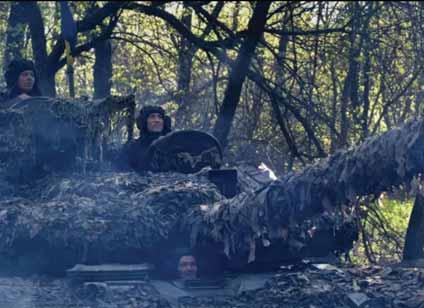 COMPILED BY ANA DUMBADZE
COMPILED BY ANA DUMBADZE

Russia’s scaled-down Victory Day military parade on Tuesday showed not only Russia’s insecurities over possible Ukrainian attacks, according to analysts, but also highlighted the country’s depleted military resources as a result of the war in Ukraine.
Russia commemorated on Tuesday the Soviet Union’s victory over Nazi Germany in World War II, but events in Moscow and beyond were far more downbeat than usual.
In other news, the UK is reportedly considering whether to designate the Wagner Group, a Russian mercenary force fighting in Ukraine, as a “terrorist organization,” with France separately calling on the EU to recognize the group as such.
RUSSIAN INFANTRY UNIT ON OUTSKIRTS OF BAKHMUT DRIVEN OUT, UKRAINE SAYS
The Russian 72nd Separate Motor-rifle Brigade stationed on the frontlines of fighting near Bakhmut sustained heavy damage and fled the area, a Ukrainian military unit said, according to Reuters.
“The 6th and 7th squadrons of this brigade were almost entirely destroyed, brigade intelligence was destroyed, a large number of fighting vehicles were destroyed, and a considerable number of prisoners were taken,” Andriy Biletsky, a leader in Ukraine’s Third Separate Assault Brigade, said, according to Reuters.
Russian mercenary boss Yevgeny Prigozhin said Tuesday that the Russian 72nd Brigade “pissed away three square km,” and that his forces lost 500 men, the news wire reported. Russia did not comment on the movement of its 72nd Brigade, Reuters said.
A Ukrainian military leader said Russia was still trying to capture Bakhmut, and
the situation “remains difficult.”
WAGNER CHIEF WORRIED ABOUT BAKHMUT ENCIRCLEMENT
The head of Russia's Wagner mercenary group, Yevgeny Prigozhin said he is concerned his forces could become surrounded in Bakhmut in eastern Ukraine.
"In view of the lack of ammunition, the 'meat grinder' is now threatening to turn in the opposite direction," Prigozhin wrote on Telegram on Wednesday evening.
"There is now a serious danger of encirclement of Wagner due to the collapse of the flanks," Prigozhin wrote.
"And the flanks are already showing cracks and crumbling."
The mercenary group has been at the forefront of Russia's efforts to take Bakhmut.
EU COUNTRIES TO DISCUSS NEW RUSSIA SANCTIONS
The European Union states started dis-
cussions on new sanctions that would crack down on the circumvention of Russian trade curbs, but a quick deal is not expected, according to several diplomats that spoke to Reuters.
The proposed sanctions would target Chinese and Iranian firms and allow export curbs on other countries for breaking existing trade restrictions, Reuters reported.
The new sanctions would highlight that oil tankers are not allowed to offload in the high seas or arrive in ports with their GPS trackers off, an attempt to push back against Group of Seven nations’ Russian oil reading restrictions, according to Reuters’ sources.
The EU would also stop transit via Russia of more of its exports, including advanced tech products and aircraft parts, European Commission President Ursula von der Leyen said in the Reuters report.
“If we see that goods are going from the European Union to third countries and then end up in Russia, we could propose to the member states to sanc-
tion those goods’ export. This tool will be a last resort and it will be used cautiously,” she said.
FRANCE LAUNCHES WAR CRIMES PROBE AFTER AFP REPORTER'S DEATH
France's anti-terrorism prosecution office announced that it had opened an investigation for possible war crimes and crimes against humanity after AFP video journalist, Arman Soldin, was killed on Tuesday by Grad rocket fire near Chasiv Yar, in eastern Ukraine.
Prosecutors said the probe would be handled by a specialist investigative unit that would seek to determine the circumstances of Soldin's death.
At least 11 journalists, fixers or drivers for media teams have been killed since Russia invaded Ukraine more than a year ago, according to advocacy groups.
VICTORY DAY PARADE HIGHLIGHTED THE KREMLIN’S CHALLENGES, UK SAYS
The make-up of Russia’s annual Victory Day Parade in Red Square highlighted the material and strategic communications challenges the military is facing 15 months into the war in Ukraine, Britain’s Ministry of Defense said Wednesday.
“Over 8,000 personnel reportedly took part in the parade, but the majority were auxiliary, paramilitary forces, and cadets from military training establishments,” the ministry said on Twitter, adding that “the only personnel from deployable formations of regular forces were contingents of Railway Troops and military police.”
The sole tank on parade — a vintage T-34 from a ceremonial unit — could also have been deliberate, the UK noted.
“Despite heavy losses in Ukraine, Russia could have fielded more armored vehicles. The authorities likely refrained from doing so because they want to avoid domestic criticism about prioritizing parades over combat operations.”
ZELENSKY THANKS BIDEN FOR LATEST SECURITY ASSISTANCE PACKAGE
Ukrainian President Volodymyr Zelensky thanked US President Joe Biden for the latest security assistance package worth $1.2 billion.
“More good news from our partners. From what can be said publicly, there is a new defense package from the United States,” Zelensky said on his official Telegram channel.
“Artillery, protection against missiles and terrorist drones, other things to strengthen our defenders. Thank you to president Biden, bipartisan Congress, and every American family for your continued support and for the American strength that keeps us strong,” he added.
The new weapons package brings the US’ total commitment to more than $36.9 billion since the beginning of Russia’s unprovoked invasion last February.
KYIV SAYS COUNTEROFFENSIVE WON'T BE THE LAST
Ukrainian Foreign Minister Dmytro Kuleba has talked down the idea of a planned counteroffensive being a guaranteed turning point in the war, adding that Ukraine will not stop launching counteroffensives until it has reclaimed all of the territory occupied by Russia.
"Do not consider this counteroffensive as the last one, because we do not know what will come of it," Kuleba told Germany's Bild newspaper in comments published on Wednesday.
He said if the counteroffensive doesn't achieve Kyiv's goal of liberating all Ukrainian territory, "it means we have to prepare for the next counteroffensive."
Kuleba said Ukraine is still seeking more equipment for its resistance against Russia.
"Because to win the war, you need weapons, weapons and more weapons," he said.
Kuleba also called on Germany to help persuade the United States to deliver F-16 fighter jets to Ukraine.
GEORGIA TODAY MAY 12 - 18, 2023 3 NEWS
Image by Sergey Shestak/AFP, Getty Images
The Internationally-Minded Nation
OP-ED BY NUGZAR B. RUHADZE
The very first thing a visitor would hear from a guide during a city tour in Old Tbilisi is the description of a life-size fact that within the historical part of the Georgian capital, among many other lovable quaint spots, the shrines of all faiths have peacefully coexisted for centuries, with closeknit streets boasting Orthodox, Armenian and Catholic churches along with mosques and synagogues. The ideal tendency of mutual help and understanding, expressed in love and brotherhood, prevailed for many centuries in this outstanding place of religious and ethnic tolerance. It would have been extremely strange for the dwellers of the city of Tbilisi to discern between Christians, Muslims and Jews, or the people of any other faith, when it came to assisting each other in the everyday vicissitudes of life. They used to be faith-and-ethnodeaf-and-blind if they needed each other's shoulders to rely on. Sakartvelo has always been a land of international coexistence and cooperation. That kind of attitude was very natural for a country that has historically enjoyed living right in the middle of the Silk Road, which so famously symbolized the active and fruitful interaction between the nations of the world. Trade and cultural exchange, economic mutuality and political communication determined Georgia’s place among the nations belonging both to Europe and Asia, our country having existed for millennia on the crossroads between the two.
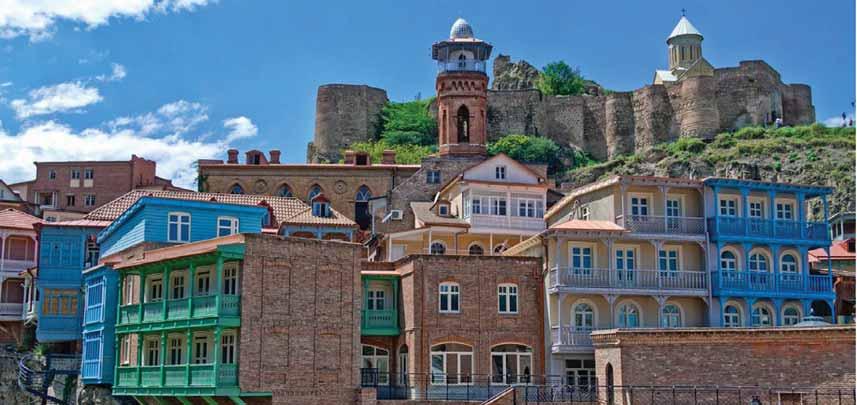
This is why Georgia’s not-yet-completely recognized Europeanism is so natural for all of us in this country, with our belonging in the Asian sociopolitical
and economic infrastructure sounding just as obvious. We are a strikingly internationally-minded people, tending more to constructive peace than to destructive belligerence. This statement of goodwill needs to be fathomed and understood well, and above all, taken seriously when the West is considering with thoughtful vacillation making a decision to integrate Géorgie into Euro-Atlantic structures or not. Here goes a veritable story, speaking volumes of how much the Georgian people desire, are ready for and deserve the honor and bliss of being “in.”
A couple of days ago, the beautiful Orbeliani Square, the site of Georgia’s
presidential palace, right in the heart of Tbilisi, was pleasantly overcrowded. The city was celebrating the Days of Europe in a very European fashion: food and drinks degustation, various kinds of exhibitions, shows and concerts, all those enjoyable events in the open air, accompanied with beautiful spring weather and widely noticeable public delight. The small and the big hung out together, as usually happens in such an idyllic situation, with lots of smiling folks mixing and partying together. I have seen public events of this sort many times in various European cities, ones you do not want to go home from and wish would
go on forever. That day, the public exaltation was natural and heartfelt. The open-air stage was filled with Spanish and Swedish folk music and choreography, the excited audience loudly and enthusiastically cheering the performers, presenting the European cultural pearls to the Georgian people. That unrestricted, beautiful and genuinely communal event, free of any charge, was organized by the Georgian government's administrative leadership, the country’s foreign office and Tbilisi City Hall, with direct assistance from the Spanish and Swedish embassies in Tbilisi and their counterparts in Madrid and Stockholm.
The speeches that sounded right before the concert of Spanish and Swedish folk arts were full of optimistic notes on both sides that Georgia will definitely receive the European Union candidacy status. The optimism of the speechmakers was frank and believable, but, on another count, who if not Georgia should receive the cherished status, a nation with a strong European mindset and way of life? Where, if not in the family of European nations, is Georgia’s likely place for further existence and development? When, if not now, should Sakartvelo enjoy its deserved spot where it has always belonged in the most natural way?
President to Veto Legislative Package on Rules of Selection of Candidates for CEC Chairmanship, Professional Membership
Continued from page 1
In particular, the candidates for the positions of: ambassadors, members of the board of the National Bank, chairman and members of the Central Election Commission. In all three cases, the President’s principled position derives from state and not personal interests.
“The President is guided by the degree of their independence and impartiality during the selection of candidates. She does not question their qualifications, but she fundamentally believes that single-party appointments to such positions are against statehood and the country’s European future. Therefore, the President will veto this law as well,” reads the statement.
Earlier, the members of the ‘For Georgia’ party called on the President to veto the changes related to the Central Election Commission, and appealed to international partners and local organizations to strengthen their efforts against the adoption of the law.
“The changes planned by Georgian Dream regarding the Central Election Commission clearly show that the government, whose trust is in question today, is already preparing to rig the 2024 elections,” MP Beka Liluashvili, a member of the For Georgia party, said at a briefing in Parliament.
“This means that they have no other resource than rigging. In order to maintain their informal power and influence, they are determined to deprive citizens of their right to vote and they are determined to steal our European future.
“The judiciary and the Central Election Commission are fully controlled by the Dream. The daily assault on our partners and the campaign of discrediting monitoring organizations creates a critical need to protect the elections, and we all
have to play our part in this, because fair and transparent elections are the only democratic way to save the European future of this country.
“Fear of losing power should not be a motive for the abolition of state institutions; the fate of the elections should not be decided in any of Ivanishvili’s residences.
“Therefore, we appeal to the President of Georgia to use the right of veto to protect the elections.
“We also appeal to strategic partners and local organizations to strengthen their efforts against the adoption of the law and ensuring free and fair elections.
“We call on the political parties and the media to make all efforts to protect
the elections,” Liluashvili said.
Legislative changes were put on the agenda after the President refused to support the current Chairman Giorgi Kalandarishvili. Georgian Dream did not support the candidates presented by the President, yet Kalandarishvili still holds the position of CEC Chairman.
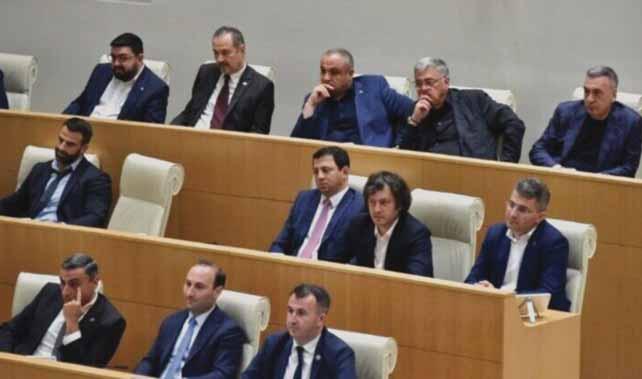
Georgian Dream has decided the Chairman of Parliament will have the prerogative to present the nominations for Chairman of the CEC and members of the CEC to Parliament instead of the President.
According to the draft law prepared by Georgian Dream, 7 members of the CEC will be elected by the Parliament of Georgia with the majority of the full composition, on the nomination of the
Speaker of the Parliament, and no more than 9 members of the CEC will be appointed by the parties.
The procedure for electing the chairman and members of the CEC was stipulated in the “Charles Michel agreement” of April 19, 2021, however, since this agreement was made, Georgian Dream has already changed it, and now the ruling party is allowing for the exclusion of the role of the opposition and the President.
According to the draft law prepared by Georgian Dream, the procedure for electing the chairman and members of the CEC will be changed as follows:
• The Chairman of the Parliament of Georgia will announce a competition for the selection of the chairman and
members of the CEC, and will create a competition commission. The presence of a representative of the President of Georgia in the competition commission is guaranteed;
• The Chairman of the Parliament of Georgia presents the nominations for chairman of the CEC and the members of the CEC to the Parliament of Georgia. The participation of the President of Georgia in the process of submitting candidacies for the chairmanship of the CEC and membership of the CEC is envisaged, if the Parliament of Georgia is unable to select persons for the vacant positions;
• The CEC chairman and CEC members are elected for a 5-year term;
• The chairman and members of the CEC will be elected by Parliament by the majority of the full composition, according to the rules established by the regulations.
The competition commission will be created based on the order of the Chairman of Parliament and will be composed of 9 members. It should include 1 representative of the President of Georgia, representatives of civil society and academic circles. The commission will be headed by its elected chairman. The competition commission makes a decision by the majority of the full composition.
According to the draft law, when Parliament elects a member of the CEC, each of the candidates for the CEC membership shall be voted on separately. The candidate who is supported by the majority of the full composition of the Parliament during the voting shall be considered elected. If all vacancies are not filled as a result of voting, the candidate presented by the President of Georgia will be voted on. If a vacancy remains unfilled, a new competition for the vacancy will be announced.
GEORGIA TODAY MAY 12 - 18, 2023 4 POLITICS
Old Tbilisi. Image source: travelteamgeorgia
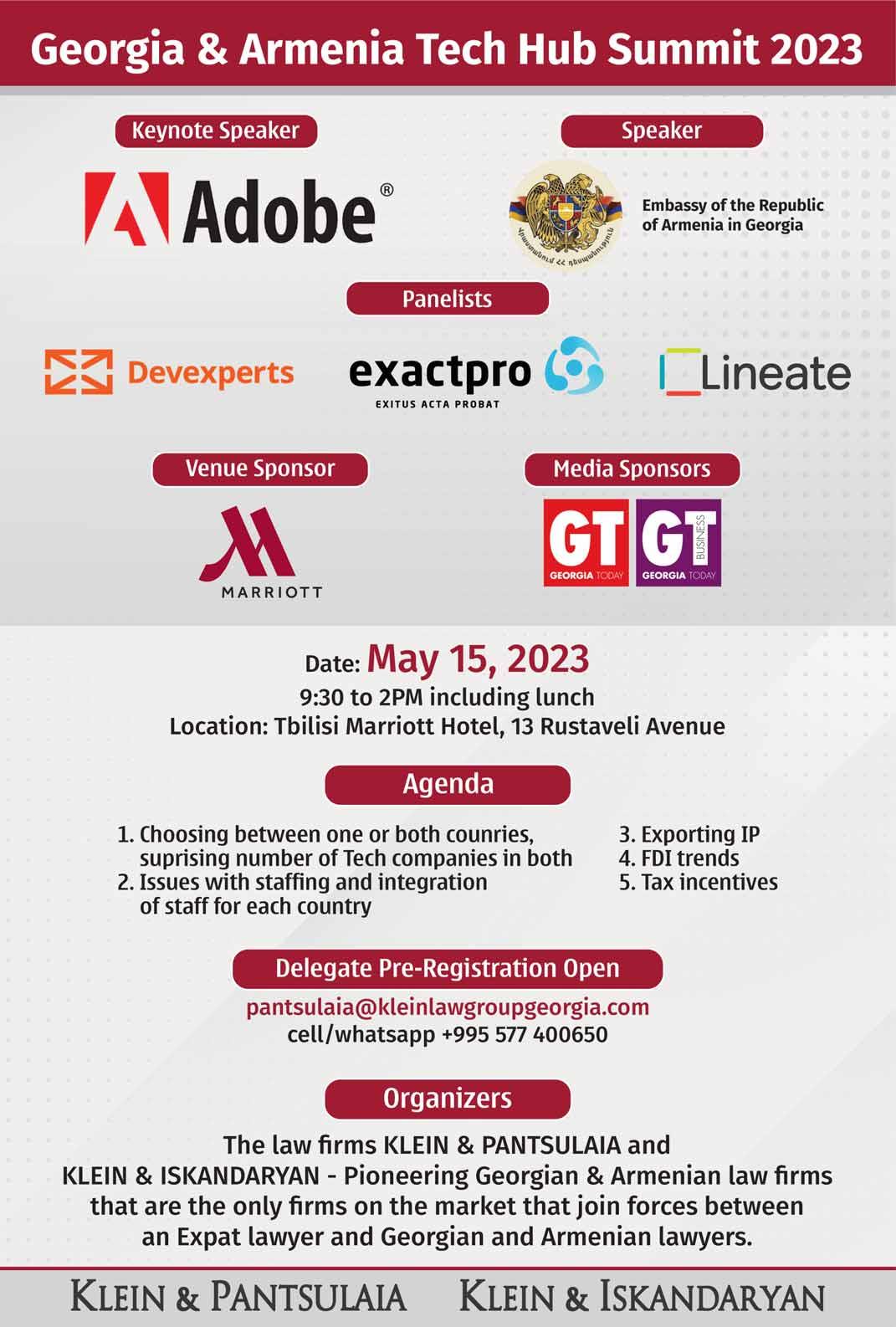
Russia, the South Caucasus and the Pursuit of Dominance
built their colonial empires overseas, Russia constructed the empire around its borders. This made it easier for Russia to invade, establish control, and a long-term rule. In comparison, the European empires had to wage military campaign thousands of kilometers away from the metropolis.
It is also true that Russian imperialism was different in the way that it did not operate far beyond the imperial borders. Again, geography is a key here. For the British and the French, colonies meant territories which were overseas. Those far-flung territories were and perhaps still are dear to London and Paris, but this geographic distance helped the elites of the two empires to accept relatively easily the end of their imperial enterprises.
regions. In a way, geography is pulling Russia back to the South Caucasus.
This poses an important question: is the problem between Russia and its neighborhood solely rooted in the fact that Russia’s political class is obsessed with imperial grandeur? The problem might actually much bigger than that. Russia is so big and populous in comparison with its neighbors (except for China) that the balance of power is perennially tilted in favor of Moscow. Ukraine’s successful defense is rather an exception than a norm.
Amid the recent decision by the Russian leadership to lift visa requirements and the flight ban for Georgian citizens, the relations between the two countries has been coming under special focus, seeing commentaries and analyses offered on what this development could actually mean. Critical for our analysis remains geography as a driving component in Moscow’s thinking toward the South Caucasus.
For Russia, the region constitutes a part of the so-called “near beyond borders”— blizhneye zarubezhie. The concept is a peculiarly Russian perception of the immediate neighborhood, which shows both Moscow’s acknowledgment of a certain distance (independence) of the region, but at the same time a close historical attachment to it. This dichotomy has often manifested itself in Russia’s ties with the South Caucasus’ three countries, Armenia, Azerbaijan, and Georgia, complicating our understanding of what the Russian ambitions truly are in the region.
The South Caucasus is also destined
Georgian Dream to Leave the Party of European Socialists
Georgian Dream will leave the Party of European Socialists, Chairman of the party Irakli Kobakhidze announced at the briefing after the session of the political council. He noted the ruling party had been a member of the PES since 2015.
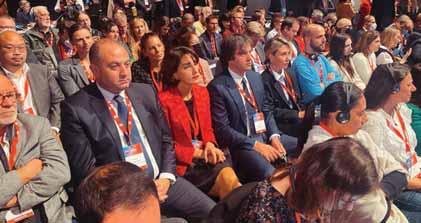
“A written statement about the decision will be sent to the Party of European Socialists immediately,” he added.
“The ideological transformation of the Party of European Socialists is unacceptable and incompatible with the values of the party and the Georgian people,” Kobakhidze said.
The party of European Socialists planned to review the status of the observer member of Georgian Dream in June. However, the “Georgian Dream” helped the European socialists make a decision and left the party itself.
According to Kobakhidze, cooperation with the European Socialist Party was counterproductive for them.
Party of European Socialists announced at the end of April that it would review
the partnership with the ruling party. The statement of the partners of “Georgian Dream” was published after the Prime Minister of Georgia Irakli Garibashvili participated in the International Conference of Conservatives (CPAC) held in Hungary. His words there caused concern among the “Dream” partners.
In his approximately 20-minute speech at the conference on May 4, the Prime Minister of Georgia spoke about various issues and made a number of homophobic statements. “Preservation of traditional values” and “inadmissibility of violence by the minority against the majority” were the main emphases of his speech.
However, according to the statement of the European Socialist Party, not only Garibashvili’s statements, but also the actions of Georgian Dream have caused them deep concern. As is clear from their statement, the issue regarding the status of the Georgian Dream was raised by the president of PES in March, when the Georgian Dream thought to adopt a “Russian Law”.
to fall into Russia’s geopolitical interests due to the geographic proximity of the imperial center and the colony. Technically, the South Caucasus was not an imperial possession in the Western sense of the word, but the history of the 19th and 20th centuries shows how increasingly distorted the relations between the three South Caucasus states and the imperial center became.
Many traits of Russian behavior in the South Caucasus indicated that the region was often regarded by Russian imperial or Soviet leaders as a colonial backwater. Again, geography might be a key here. Unlike the countries in the West which
Moreover, it is this geographic distance which eventually made a difference when the age of empires ended, and colonies had to be freed. Security-wise, while the Western empires were shielded by enormous distance, Russia was not. This perpetually invited Russian military measures, and caused fears of potential discontent turning into a revolt. This can explain a particularly high pace of militarization of Russian foreign policy in the South Caucasus since 1990s.
Russia had to be active in its neighborhood. It had to act to maintain influence at least to secure its unstable borders.
Total detachment from the space could potentially result in troubles for internal Russia. Unlike the European empires, Russia has not been shielded by protective oceans. Gradually, the measures to stop potential instability evolved into the tools for exerting geopolitical control over the region. Then Moscow itself added to the insecurity in the region by providing support for the separatist
This unfavorable geopolitical reality for Russia’s neighbors could lead to yet another conclusion, that even if Russia becomes a fully liberal country within its present borders, it will still likely pursue dominance in its neighborhood. This realist perspective is indeed helpful, as it minimizes unnecessary expectations that a truly democratic Russia will possess a geopolitically different mindset. A liberal Russia will at least try to pursue a liberal imperial project through which it would dominate its neighborhood economically and perhaps even create a certain order of exclusion – a development which in the end is hardly compatible with the true liberal traditions in world politics. Geography is thus a curse for Russia, but it is also a driving force behind its imperial project. Russia’s size and politically/militarily relatively weak neighborhood will remain a dilemma which will easily invite Russian leaders to exert pressure on its smaller neighbors unless the latter are not backed militarily and economically by other big players.
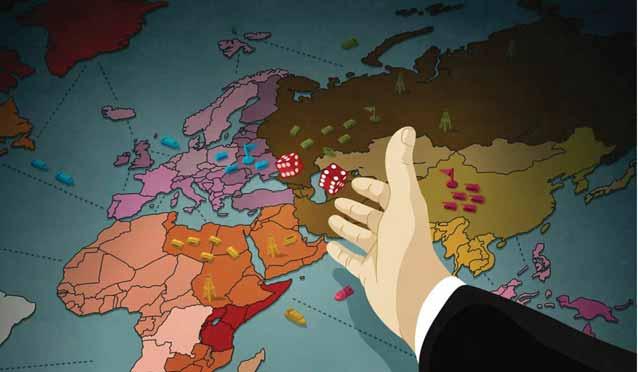
Emil Avdaliani is a professor at European University and the Director of Middle East Studies at the Georgian think-tank, Geocase.
US State Department Once Again Warns Tbilisi about Expected Sanctions
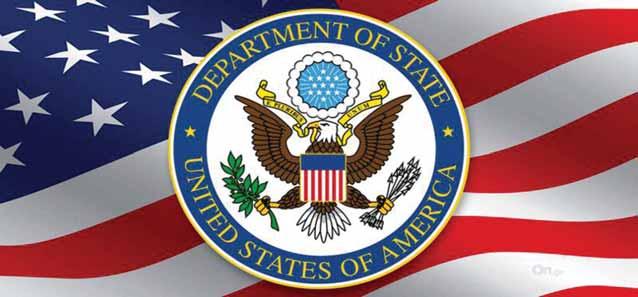 BY ANA DUMBADZE
BY ANA DUMBADZE
Putin’s decree and warning from Washington – The State Department of the United States of America once again warns Tbilisi about the expected sanctions in case of resumption of direct air traffic between Russia and Georgia.
The statement is distributed by the agency Accentnews.
The text reads: “A number of Western
countries, including the United States, prohibit Russian aircraft from entering their airspace. If direct flights between Russia and Georgia are resumed, this will cause our concern due to the possible imposition of sanctions on Georgian airlines that serve aircraft subject to import and export controls.”
“The entire Western society has distanced itself from this brutal regime –now is not the time to deepen relations with Russia. For the Georgian people, it is most likely better for Putin to withdraw his troops from the 20 percent of Georgian territory occupied by Russia,
than to restore direct flights or change the visa regime,” said the official comment provided to “Accent” by a representative of the US State Department. For the record, the Ministry of Foreign Affairs of Russia canceled the recommendation for Russian citizens, according to which the agency advised them to refrain from traveling to Georgia, said Maria Zakharova, the Spokesperson for the Ministry of Foreign Affairs of Russia. The above decision was simultaneously followed by the resumption of direct flights to Georgia by Russia and the cancellation of the visa regime.
GEORGIA TODAY MAY 12 - 18, 2023 6 POLITICS
Image source: theguardian ANALYSIS BY EMIL AVDALIANI
Maneuvering at the Crossroads - Donald Rayfield on Georgia’s Political Leanings, Surviving Putin, and the Church’s Power over Progress
ON PUTIN CANCELING VISAS FOR GEORGIANS AND RESTORING FLIGHTS – HOW FAR MIGHT THESE DEVELOPMENTS GO?
It will be welcomed by nearly a million Europeans who depend on Russia in one way or another. And Russian investment in the Georgian economy would grow. But I think it's an iron grip, and it ensures that the old Georgian policy of balancing between Russia on the one hand, Turkey on the other, and Iran, and recently Russia and Europe, continues.
Georgia is not really a crossroads anymore, because access to Europe is being reduced. Less and less sympathy for Georgia is noticeable in Europe, for example, regarding the EU candidacy. Another extraordinary thing about Georgia is that you have a president who thinks completely differently from the Prime Minister and the ministers, and yet she is powerless. She is a skillful politician. She was the only Georgian who could talk to Putin without shaking his hand and doing what he wanted her to do, but without annoying him. And is she definitely a figurehead. People in Europe talk to her, she talks to people in Europe, but the government ignores her. It paints the picture of Georgia as a dysfunctional state.
INTERVIEW BY VAZHA TAVBERIDZE FOR RFE/RL
Throughout history, Georgia has attempted, numerous times, to establish itself in the European camp. One sardonic account tells of numerous Georgian kings asking the popes of their times for 20,000 warriors and getting six missionaries instead. In his conversation with Radio Free Europe’s Georgian Service, English academic and Emeritus Professor of Russian and Georgian, author of numerous books about Russia and Georgia, Donald Rayfield OBE, shares his views on Putin’s choice to reopen flights and lift visa restrictions for Georgians, Georgia’s political leanings, possible outcomes of the Ukrainian war, and how to survive Putin’s ambitions.
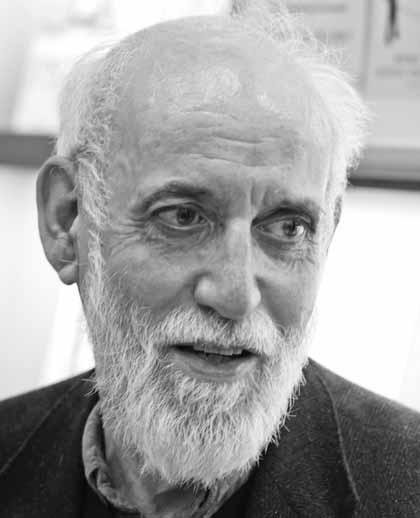
LET’S START WITH YOUR SEMINAL BOOK “EDGE OF EMPIRES: A HISTORY OF GEORGIA.” IF THIS BOOK WAS BEING WRITTEN TODAY, WHAT WOULD THE TITLE OF THIS PARTICULAR CHAPTER WE ARE IN RIGHT NOW BE?
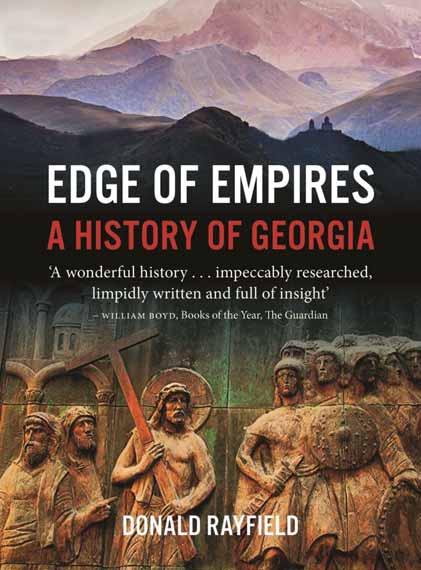
It would be “Retreat from Europe,” I'm sorry to say. I think the government, with Bidzina Ivanishvili’s leadership, has made
a bet that they will pretend to want to join the EU, to be part of the West, but that it is in their interest to keep Putin sweet, that they are economically dependent on him. So many Georgians work in Russia now. And now they've got visa free travel back. It's noticeable that very, very little is said about Ukraine by any official in Georgia. They are like frightened mice when the cat is killing another mouse. I can understand it. I imagine it wouldn't be very difficult for Putin, even while occupied in Ukraine, to send a few troops, a few planes and extend the boundaries of Samachablo and Abkhazia. It sabotages any hope Georgia had of fulfilling its 2000-year dream of joining Europe.
The government will want the West for tourism and trade, but they don’t want any political involvement in the EU. They say they do, but they don’t.
I’m also worried about the developments in the field of culture, with Minister Tsulukiani dismissing enormous numbers of people, accusing them of stealing paintings and so on. It’s quite shocking. It's not a government that's interested in culture, and it is certainly not interested in European integration, whatever it says.
I don't know what’s happening with the influx of Russians. It seems extraordinary that Georgia would allow these tens of thousands of Russians, unblockable, without investigation, without due diligence, to come in and out. And I fear there is some communication with the Russian government about who's coming in. Among those Russians will undoubtedly be agents of the Russian government. It seems dangerous to Georgian security. The way in which it is happening is alarming.
I feel very unhappy about what has happened in Georgia. The other unhappy thing is the political prisoners, Saakashvili, in particular, slowly being killed. I myself feel that Saakashvili is like Napoleon – he did some wonderful things and he did some terrible things. And the terrible things he did do need to be investigated by a proper court, but leaving him in prison with inadequate medical help and very dubious legal treatment, and ignoring pleas from Europe, is a great mistake.
Georgians as particularly religious, but suddenly people were crossing themselves all over in the minibuses, and the only person in Georgia who can meet and kiss Putin is the Patriarch. And how the Georgian public square with that I don't understand. You have to be a very religious and obedient Christian to allow your Patriarch to get to the devil like that. The Orthodox Church is one of the great brakes on progress for Georgia, I think.
THEN WE DON’T HAVE MUCH OF A STICK TO BEAT THE GEORGIAN GOVERNMENT WITH. THEY SAY “THE WEST DOESN’T WANT US THE WAY WE ARE, SO WHAT CHOICE IS THERE OTHER THAN TO MAKE NICE WITH RUSSIA?” The other choice is to be not quite the way you are; to be a little bit different. Tidy up your justice system, parliamentary system, the politics of the country. Don’t have a cabal of businessmen running the country. Make personal contacts in Europe, in the European Parliament, in European governments; find people who will be so enamored with Georgia that they will fight the fight for it.
easier. But I don’t think Georgia is decorative anymore.
IT HAS ALSO GAINED A HEDONISTIC APPEAL.
Yes, it has a hedonistic appeal. Even though life, in fact, it's really quite tough in Georgia, it appears to be fun.
YOU WROTE EXTENSIVELY ABOUT STALIN. HOW MUCH HAS PUTIN BORROWED FROM STALIN’S NOTEBOOK, AS RUSSIA BECOMES INCREASINGLY TOTALITARIAN?
I think he is a Stalinist, in many ways. He is probably as clever as Stalin, and as nasty. Startling and as nasty. It's just that he understood, from the Chinese, that you have to let the economy go fairly free. Let people make a lot of money.
CAN HE HOPE TO REPLICATE STALIN’S “SUCCESS”?
Stalin, when he died, must have thought he’d been successful. The system did go on for another 45 years. Whether it works out the same way with Putin remains to be seen. I’m glad I’m old enough I won’t be around to see what comes out of it.
HOW
FOR GEORGIA?
JUSTIFIED DO YOU THINK THE FEARS ARE THAT THIS COULD END UP BEING ANOTHER 1783 MOMENT
It depends what happens in Ukraine, and there the West is not doing enough. It supplies Ukraine with tanks and bullets, rockets. And I have a feeling the thinking is, “we will give Ukraine just enough to go on fighting and bleeding Russia dry.” But in the end, however inefficient or in a terrible shambles Russia is, it will still have enormous resources. The tanks and rockets might date back to World War Two, but they still work. As often in Russian history, the beginning is total shambles, but in the end, they will grind because they don’t care how many of them die. They may well achieve some sort of victory in Ukraine, be able to hang onto what they've taken, and the West will shrug its shoulders. That might end up very dangerous for Georgia.
WITH THAT IN MIND, HOW MUCH ROOM FOR MANEUVER IS THERE AT THESE CROSSROADS? FOR ALL THIS TALK ABOUT GEORGIA BELONGING TO EUROPE, HOW INHERENT DO YOU THINK IT IS FOR GEORGIA?
Georgia believes it, but, unfortunately, Europe doesn’t. Georgia needs to be much more demonstrative and prove that it is a democratic country if it is to attract foreign visitors, politicians particularly, to make some friendships. If Georgian diplomacy had one weakness, it was always that they are very, very good at understanding their enemies, but they tend to overestimate their friends. And I say you should keep your friends closer than your enemies. The problem, of course, has been that the relationship with the United States of America was very much a relationship with the Republicans. And that was fine with Bush, but once Trump came in, well, Trump doesn’t care if the rest of the world goes to hell, as long as America makes money out of it. Biden is not particularly interested- you can see the Caucasus is a blank space for him. The Caucasus is not on the on the American radar anymore.
The last point I would make is that one of the most extraordinary things in Georgia, one I didn't expect, after the end of the Soviet Union, is the power of the Church. Before that, I never thought of
I REMEMBER ONE ANECDOTE OF YOURS ON THE REPLY OF A PERSIAN AMBASSADOR WHEN QUIZZED BY HIS ENGLISH AND FRENCH COLLEAGUES AS TO WHY IRAN WANTED TO GET GEORGIA BACK. “IT’S MOSTLY USELESS, BUT HIGHLY DECORATIVE” WAS THE ANSWER. CENTURIES ON, WHAT DO YOU THINK GEORGIA’S STRATEGIC WORTH AMOUNTS TO TODAY?
I think, given modern tastes, Georgia is more useful – it has unspoiled nature, which is very hard to find these days. It has mountain snow that doesn't melt in the middle of winter, so better than Switzerland. It has much better food than most European tourist centers. It excels at welcoming guests. Georgia is on the right path, it’s just that they ought to do it more efficiently so as to make access
IF YOU WERE TO GIVE ONE BIT OF ADVICE TO GEORGIA AND COUNTRIES LIKE IT HOW TO SURVIVE UNDER PUTIN AND HIS EVENTUAL SUCCESSORS, WHAT WOULD THAT BE?
To survive an aggressive Russia, I think you have to have universal military training. And you have to have a charismatic leader. And Bidzina Ivanishvili – I admire what he has done to the botanical gardens and zoos, but I don’t think he’s capable of leading a nation in times of stress.
YOU ARE WORKING ON A BOOK ON CRIMEA. WHAT DO YOU THINK ITS EVENTUAL FATE WILL BE IN THIS WAR?
I fear that it will be a Russian enclave and it'll stay a Russian enclave. I fear that it will require a miracle to get the Russians out of there, and I don't think anyone in the West has the stomach for it.
GEORGIA TODAY MAY 12 - 18, 2023 7 POLITICS
Georgians are very, very good at understanding their enemies, but they tend to overestimate their friends
Donald Rayfield
Terabank in Partnership with Visa Launched the Most Flexible and Secure International Payment Platform
Visa B2B Connect for the First Time in Georgia
In partnership with Visa, Terabank is the first bank in Georgia that has launched the Visa B2B Connect platform and offered business customers the fastest, most flexible and secure international settlement service.
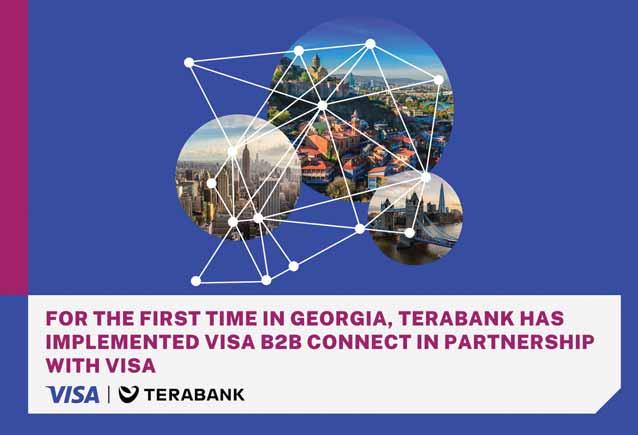
The Visa B2B connect platform enables any Terabank business customer to take advantage of today's most modern, innovative, non-card-based, bank-to-bank messaging and settlement services in order to make and receive secure and flexible international payments in 107 countries around the world. Visa B2B Connect differs from traditional methods primarily in speed: when using the platform, transactions are reflected in 24-48 hours, depending on the receiving country. Terabank customers can use the service both remotely, through the Internet bank and mobile application, and by visiting any of the branches.
Supporting business customers, especially small and medium businesses, is an important strategic direction for Terabank. In order to develop their activities, the bank is constantly working on offering and improving the highest quality, innovative services and products. The introduction of the Visa B2B Connect platform also confirms the bank’s commitment to this strategy.
"At Terabank, we are always aware of the role that modern, innovative, transparent and flexible financial services can play in the success of our business customers' activities. We believe that the introduction of the Visa B2B Connect platform will make an important contribution to the realization of this role and, at the same time, will help strengthen not only the financial sphere but also the business sector of the country as a
whole. This news once again emphasizes Terabank's aspiration to offer digital innovations to users and strengthen cooperation with foreign partners," said
Thea Lortkipanidze, CEO of Terabank.
“Our team is excited to launch Visa B2B Connect in Georgia in partnership with Terabank to facilitate cross-border payment from Georgia to multiple markets across the globe. We believe that by implementing one more innovative technology in Georgia, we increase the
efficiency of local financial institutions and their corporate clients, and support businesses and SMBs to enjoy Visa B2B connect platform and its benefits. At Visa, we are confident that by driving value for banks as trusted partners, we develop digital payments and e-commerce on a local and global level,” Diana Kiguradze, Visa Regional Manager for the Caucasus Region said.
The Head of Visa B2B Connect, CEMEA, Vishal Virmani, said, “The Visa B2B
Connect platform is designed to make cross-border payments easier, fast, secure, and efficient. Terabank’s participation in Visa B2B Connect will benefit the bank’s customers and expand crossborder commerce opportunities for the Georgian market.”
ABOUT VISA B2B CONNECT
Visa B2B Connect is an innovative noncard-based multilateral platform delivering B2B cross-border payments that
are predictable, secure and cost-effective for financial institutions and their corporate clients. Using a one-to-many connection, Visa B2B Connect helps reduce a number of correspondent transfers required to process a payment. This allows for more cost-effective crossborder transactions and provides both corporate finance institutions and their customers transparent view of fees associated with each transaction helping the companies to manage their cash flows.
Visa B2B Connect allows payments to be also made to the banks which haven’t joined the platform yet. To learn more about Visa B2B Connect and how to join the platform, please visit www.visa.com/visab2bconnect
ABOUT VISA
Visa (NYSE: V) is a world leader in digital payments, facilitating payments transactions between consumers, merchants, financial institutions and government entities across more than 200 countries and territories. Our mission is to connect the world through the most innovative, convenient, reliable and secure payments network, enabling individuals, businesses and economies to thrive. We believe that economies that include everyone everywhere, uplift everyone everywhere and see access as foundational to the future of money movement. Learn more at visa.com.ge
ABOUT TERABANK:
Terabank has occupied an important position in the Georgian financial sector since 1999. Its mission is to help entrepreneurs, their employees and their customers solve their business and personal financial problems with exceptional and individualized services.
Gov't Kicks off 125 million GEL Construction of First "Police Town"
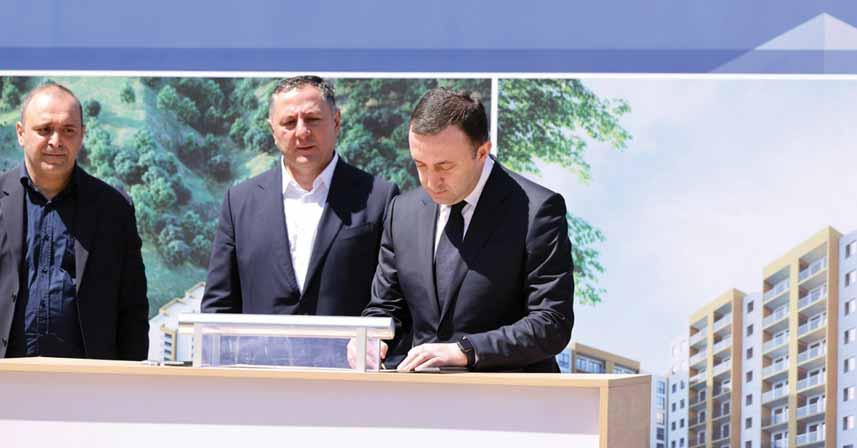
Iam glad to have been able today to participate together with Mr. Gomelauri in this far-reaching event. We have started building Police Town that will accommodate over 1,000 police officers. Work has already commenced, and the construction company promises to finalize it very soon, probably in about two years. And we will provide over 1,000 police officers with apartments, - Georgian Prime Minister Irakli Garibashvili told journalists after the ceremony of burying a time capsule in the foundation of Police Town.
As the Head of Government pointed out, the project costs about 125 million GEL, for which police officers will pay a symbolic price, while the rest will be covered by the state.
“This project costs about 125 million GEL. Police officers will pay a symbolic price, about 300 GEL per m2, and the rest will be covered in full by the state, the Interior Ministry. Most importantly, I would like to inform our prized hero police officers that this will not be a onetime project. The construction of Police Towns will continue, and we, and I personally, really want to guarantee this on the legislative level. Once again, I want to thank our hero, prized police officers for everything, for protecting our country, our country’s security, and our citizens. Our Government is obligated to do all that is best for our hero police officers. Once again, I thank Mr. Gome-
and each and every police officer,”
GEORGIA TODAY MAY 12 - 18, 2023 8
BUSINESS
lauri
the Prime Minister stated. A ceremony of burying a time capsule was held to mark the construction of Police Town designed for the Interior Ministry’s employees.
After the completion of construction, at the initial stage, over 1,000 on-duty police officers and Interior Ministry employees will receive apartments. Police Town project is under imple-
mentation on Anna Politkovskaya Street, Saburtalo District, with 12- and 13-story residential buildings to be constructed in a 6-hectare territory. Along with the residential complex, entertainment and
athletic spaces will also be arranged. The apartments will be allocated to police officers for a concessionary price of 300 GEL per m2, while the rest of the cost will be covered by the state.
Your Life Is in Your Hands – Georgian Youth Fight to Raise Standards in their Communities with USAID, PH International and MCK Support
 BY KATIE RUTH DAVIES
BY KATIE RUTH DAVIES
I’ve lived in Georgia for coming up 16 years. I have three halfGeorgian kids here who are growing up within the Georgian state education system. So far, they seem to be doing well. I’m aware they have the advantage of my “Western” influence giving them a tolerant, open, democratic and contemporary outlook on life, one not driven by tradition or religion. Many of the kids I met in Kakheti last week don’t have such an advantage within their families, but they and their teachers are grabbing for it anyway, in the most impressive and inspiring way.
“Your Life is in Your Hands” is one of many slogans a Kakhetian school used in its civics project to promote road safety in its village. But the message is far broader-reaching for the young people in schools countrywide being trained and funded by the USAID, PH International and MCK program “Civic Education,” now in its third round and supporting 650 schools. The program aims to help Georgia’s youth become more proficient in democratic principles, to develop student-led civics programs, and to provide technological resources to get students engaged in public democratic governance and social discourse.
Through the program, USAID and PH International partner with the Ministry of Education, Science, Culture and Sport of Georgia (MoES), local schools, and civil society organizations to institutionalize civics education as a key component of Georgia’s public-school curriculum. Key activities include enhanced teacher training and civic curricula, practical civic education projects, and support for student-led civics clubs.
For some of the participating school pupils, the abovementioned slogan is painfully real – such as in Signaghi, one of whose schools is campaigning against underage marriage, a fact still seen in some villages in this region. Laws are in effect, but these often conflict with religious beliefs or community tradition. The children of the Sighnaghi school I met are hell-bent on raising awareness of the potential damage such practices can cause.
“We want to show young girls an alternative path to early marriage: the path to a good career. It’s not about having a diploma in your pocket, but about finding something you love and value to give back to society,” one student told us. She goes on to mention the guests they have so far invited to give career talks in school, and the excursions they have made to various local workplaces- a police station, a dentist’s, all with the aim of inspiring young girls to seek more out of life than marriage and child-rearing.
For others, “Your Life is in Your Hands” speaks of different kinds of opportunity, such as in the Lagodekhi school whose students speak Azerbaijani at home and learn Georgian as a second language at school – where, this year, they were
united in a theater project that helped perfect their vocabulary and pronunciation in Georgian. Their teacher notes they are now waiting for an answer on a funding request to have a Tbilisi actor come and train the children via a sixmonth course. Such courses naturally go beyond mere “fun,” as the Azerbaijani children, with better Georgian, will be able to advocate for their rights within the country they call home, participate in political and social processes, and contribute to Georgia’s development. Other awareness-raising efforts made by the various school students I met in Kakheti include promoting recycling, protecting local flora, providing career advice, and understanding democracy and why we need it.
In another Lagodekhi school, they came up with a map and app that provides information on the unique and interesting trees that grow in the town, and the need to protect them.
In Afeni’s school, the civics club students chose to highlight road safety, as the road in front of the school was commonly used as a drifting zone. They reached out to local authorities and companies for sponsorship to paint a zebra crossing and provide road signs. Until it is officially implemented, the children painted their own zebra crossing and filled each white stripe with slogans on safety, in this way reaching out to and involving their schoolmates and the local community, as well as (we hope) the irresponsible drivers.
“It is important to be a citizen and have a say. We have a responsibility to be active citizens, to be forward thinking, to create projects for a better future,” a Telavi student noted.
Such abovementioned projects, run by various-aged students in the schools’ civics clubs, see the children trained how to advocate for solutions, how to analyze, measure results, and communicate. They are guided on how to engage with relevant authorities – be they local politicians, local police, or businesses from which they wish to seek funding – and how to spread the word creatively within their schools and communities, seeing posters being printed or hand-made, flyers handed out in door-to-door visits with neighbors, or community events being held to bring people together for discussions.
ON CIVICS AS A CURRICULUM SUBJECT
From 2010, after some six years’ development, the Ministry of Education and Science of Georgia (MoES) began the slow roll-out of civics as a separate subject in the school curriculum. Initially, this was only for 9th and 10th graders. Since then, the subject has been introduced across the board.
Mariam Chikobava, of the Department of Schools and General Educational Development at MoES, took us through how civics currently works as a school subject in Georgia’s 2000+ schools.
1st grade introduces general ideas of civics education, while 2nd to 4th grade
develops the concept of “my family,” “my school,” and expands toward the social environment, media and information, and the country as a whole. Over time, the subject increases awareness of why institutes exist.
For the first four grades, as yet, teachers need no specific qualifications in teaching the subject, and even those teaching higher levels are learning onthe go, coming from a background of teaching math or history.
We ask Mariam if there is a disadvantage in having non-specifically qualified teachers teaching civics. “At this stage, we are setting the standards we eventually want schools to follow, and are dealing with the issues step-by-step as they come up,” she tells us. “It needs a generation to change and is slow process, but it is progress, and in reality, we can’t just wait for the new generation to come into teaching. In many cases, the children enjoy the topic so much, it draws the teachers in and inspires them to progress.”
In 5th and 6th grade, historical events, legends, ethnographic traditions, and geographical elements are brought in to develop what the children touched upon in the first grades of study. Students are encouraged to discuss human rights, stereotypes, tourism, Georgian culture, and to identify issues in the community, to understand the need for a multiplicity of professions, and to begin to understand the need to handle their finances by saving their pocket money, for example.
From 7th to 9th grade, students are on to healthy living, caring for the environment, and they delve deeper into economic issues. At this stage, they expand beyond their own country, analyzing what it means to be a global citizen, as well as revisiting and developing upon human rights, and learning about governance, peace and conflict, bullying, cyber bullying, and how to advocate for themselves.
By 11th grade, and going into their last year of schooling, civics students look at business elements, risk analysis, political ideals, regimes, effects of globalization, global economy, crises, and more.
In the 2022-2023 academic year, older students are being obliged to create projects on a related civics theme of their choice. This means independent working in groups, as individuals, or as a class - with the teacher in a consulting role.
“This is a trial year,” Mariam notes. “There’ll be no grading of these projects – it gives both the teachers and students a chance to find their feet with the concept.”
The challenge continues, with the Ministry trying to give teachers freedom in what and how they teach, and battling the fear many “old school” teachers have of making mistakes, a fact which leads to their tendency to follow the books word for word, not leaving time for discussions, debate or creativity in the classroom.
A brilliant example of the shedding of “old school” teaching can be found in Telavi School No5’s civics club, run by the boundlessly energetic Zeinab Kakalashvili, who has a plethora of projects to show off – both of the current cohort of students and from past alumni who are now studying in universities abroad, with
the lessons they learned being put eagerly into practice. Traffic safety, placement of a community bus stop, the fight for gender equality, the fight against domestic violence, awareness of the need for democracy and a fair vote when electing class representatives – these are just some of the topics the children have chosen to focus on and raise awareness about. And that awareness-raising comes in numerous inspiring forms- from printed or hand-drawn leaflets or posters, presentations to schoolmates and members of the community, to meetings with local municipality representatives, and also with businesses, with the goal of seeking funding for materials, technology or training.
CHANGING VALUES, CHANGING OUTLOOKS
GEORGIA TODAY sat down with Marina Ushveridze of PH International to discuss the progress so far, and the program looking ahead.
“This is the third 5-year project USAID has funded to support school-based civics education,” she tells us. “It kicked off a year ago and is supported by the Ministry of Education and Science of Georgia. We’ve added a new component to it, which is private sector involvement and the use of technologies in civics education. Where it started out focused on increasing the quality of civics teaching at schools and the practical activities of students (applied learning) in civics, now we’re working on a more supportive eco-system. School is a model of a mini state for kids. Whatever they learn in school, they practice later in life. That’s why school democracy is very important, not only to practice during civics class or in their civics clubs or student governments, but across all subject disciplines, so as to have a platform of shared values.
“We’ve seen a lot of progress in schoolbased civics education,” Marina notes. “Civics teaching has been introduced at all levels of schooling- primary school, middle school and high school, while, 10 years ago, it only appeared in grades 9 and 10, and only as a taught class- no projects or activities. This is big progress. The challenge yet to overcome is that a culture of civics and democracy does not yet prevail in schools. This is what we’re working on now. Our next goal is to help establish a democratic culture in schools, the concept of shared leadership, and the greater involvement of school administrations in supporting student governments. At this stage, student governments are still very much on paper, and are not so active. We want to make student governments stronger, as an important component of school democracy, together with their teachers, parents and school administration.
“We plan to work with MoES to create online civics courses, so it doesn’t matter where you are- you can participate in civics classes, meet teachers, and share and learn from each other. This will ultimately increase access to civics education. We will work with coaches who support the development of civics, and school leadership at the regional resource centers level, and we’ll bring in some international expertise to get us there.”
We next asked Marina about the USAID – PH International program’s latest inno-

vation: The School Business Forum. The basic concept is to give the students, having identified issues in their schools or communities which need “fixing,” a chance to get funding for their proposed civics projects from local businesses. At the forums, which are held once per year in each region of Georgia, the students have to “sell” their projects to business representatives for financing. Before that, they get online training on writing and presenting, and the need to prolong their relationships with companies after financing.
“This is a totally new concept for them that needs to be taught,” Marina says. “We show them the need to engage their sponsors even after they receive funding, be it through the occasional phone call, email, or by offering an invitation to a relevant event. It shows appreciation and the fact they value the business’ contribution to what they are trying to achieve.”
And the concept seems to be working. There is growing interest from the private sector in supporting education. Top examples include Heidelberg Cement, TBC Bank, Biblus, Barambo and Bank of Georgia. In reality, education is the easiest thing to support- no-one can be against it, there’s no politics involved, and it’s positive for the company’s image. “The Business Forum is an innovation which has been successful so far. It kicked off in October 2022. We’ve done nine so far and they went well,” Marina tells us. “Over 20 projects have been funded by different companies. Very often, local companies in those regions support students’ projects. We identify and make a list of businesses who operate locally, and we introduce the School Business Forum concept to them. We invite them as speakers to the schools, giving them a chance to speak about their corporate social responsibility strategies to an audience made up of students, teachers, school administration officials, and community members.
“Student preparation starts 3-4 months before the forum, and we help them shape their projects in a short and concise way so that they are clear and easy to explain to the business representatives they’ll meet. We help students develop their presentation skills, their ability to argue their views, to prove that what they are asking for is highly needed for the school, for young people.
“Businesses have been very engaged, asking a lot of questions, and sometimes they themselves work with the schools to adjust the project and align them more with their business interests. This is when kids learn how to negotiate. We also teach the kids not to get frustrated when their projects are not funded; to keep trying.”
We ask Marina about the sustainability of the USAID-PH International civics education project.
“Until Georgia’s democracy is fully developed, we will continue to need external support,” she tells us. “It was a very good decision to, with this third stage, create an ecosystem to support civics education in schools so that it is no longer dependent solely on USAID funding; so that the schools can continue to get support from the private sector even after this project ends.”
GEORGIA TODAY MAY 12 - 18, 2023 9 SOCIETY
The Lyons Share
BLOG BY TONY HANMER
This article comes to you from Lyon[s], France, where my wife and I are on holiday for 11 days. It might feature a higher proportion than usual of words of French origin to reflect this (if I can get around to achieving it).
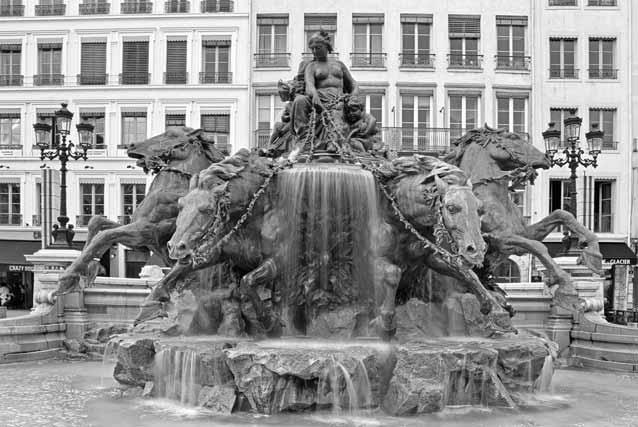
We had long dreamed of “Paris in the Spring,” but we have a good friend from Georgia who has lived in Lyon for a decade or so. She offered us a spare room in her apartment, so we decided to start here and give ourselves three days in Paris at the end. This was largely determined by our flight, which is between Kutaisi and Paris Beauvais airport, care of Hungarian budget airline WizzAir. We chose the 10 kg hand luggage-only
option and halved the ticket price: two return tickets for 1100 GEL. We can afford the bills, but not the frills…
Our journey went thus: driving to Kutaisi, leaving the car with friends for free parking. Taxi to Kutaisi airport.
Direct flight, no-frills but fine. Bus to Paris center; we bought a single-use Metro ticket at the same time, to speed things up. Metro, 1 line and 13 stops to Gare de Lyon railway station. Tickets for the TGV (very high-speed) train to Lyon. Met by our friend at Lyon Part Dieu station. Tram closer to her flat. Walk the remaining 1 km or so. Crash.
Every stage of our journey after the flight left in a few minutes at most, and we found ourselves running to get tickets and board the Paris-Lyon train, which whizzes along at up to 300 km/h, nonstop. Even buying a combined bus ticket to the center of Paris and a single use Metro ticket for each of us at the airport
proved to be a good decision, saving us minutes which might have resulted in the collapse of the whole house of cards of our delicately balanced journey! As evening fell, the perfectly manicured French rural landscape flashed by. Alternating fields of green wheat and shocking yellow canola flowers, from which good cooking oil is pressed. Old stone farmhouses and little villages, character preserved by strict architectural conformation laws. Windmills for electricity, exactly the same design as the seven we have in Georgia just past Gori. Forests, mostly deciduous but a bit of coniferous too, with signs of a jumping deer for the next 12 km. A sign for “Maison de [house of] Van Gogh”!
We arrived in the railway station of Lyon at about 9:45 at night, most relieved not to have had to find an overnight place to stay in Paris in the evening; and were greeted there by our waiting friend, then delivered to her apartment, all smooth and straightforward. Settled in, we collapsed for the night after such a day of non-stop motion.
Lyon, France’s third-largest city with about half a million inhabitants, is a glory, dating back to a city on a hill built by the Romans from 43 BC. Ruins and writings attest to this community, called Lugdunum. The rivers Rhone and Stone run through it, separating the old from the more modern city.
Our hostess took us on a number of tours, part walking and part by city trans-
port, which includes a metro, buses, trams and trolleybuses. These latter two forms of vehicle I have not seen since my 1990s in St Petersburg, Russia. There, the trolleybuses were infamous for their overhead electricity-conducting antennae coming loose from their wires, leaving the bus like a stuck cricket with its feelers waving in the air until the conductor could reattach them. Tbilisi had none of these left when I arrived in 1999, and as I remember no trams either. But here they work flawlessly as I see. Tbilisi was the first city where I discovered rented bicycles (mechanical and electric-assist), cars, motorbikes and scooters (like the bikes). But these have been in use here and elsewhere for longer, and indeed are hugely popular. I also saw a strange contraption with 8 riders situated around its rectangular form, all pedaling in 4 different directions but somehow all contributing to its forward motion…
We took in the magnificent 19th century hilltop Basilique Notre Dame de [basilica of our lady of] Fourviere; the huge Gold Head Park and lake where thousands of locals and tourists have space to relax in nature; the deliriously well-stocked Fine Arts Museum; and



walks through the Old City. All magnificent. Lyon is very multicultural, with inhabitants having come from all over the world it seems, especially from France’s former colonies. There was some poverty in evidence as well, a few homeless people and beggars, but in general a lifestyle of opulence. Called the food capital of this country, which itself has been called the food capital of the world, Lyon is indeed delicious.
We mostly ate from a selection of cheeses, hard and soft, entirely new and exotic to us, on lovely chewy rustic bread baguettes, also trying some unheard of sorbets such as lemon and basil or passion fruit. My main souvenirs will, of course, be my photos, of which a few are here.
Next week, from Paris.
Tony Hanmer has lived in Georgia since 1999, in Svaneti since 2007, and been a weekly writer and photographer for GT since early 2011. He runs the “Svaneti Renaissance” Facebook group, now with nearly 2000 members, at www.facebook.com/ groups/SvanetiRenaissance/
He and his wife also run their own guest house in Etseri: www.facebook.com/hanmer.house.svaneti
GEORGIA TODAY MAY 12 - 18, 2023 10 SOCIETY
On the Positivity of Wings for Life and 2023’s Three Georgia Winners
There are a lot of international events, sports competitions, conferences, and international days that the planet celebrates, but none of these events has become as much an influencer as the Wings for Life World Run, which unites everyone no matter who you are or what sporting capabilities you have. Every year, people in numerous countries around the globe unite to run without a finishing line and without competition; only competing with themselves based on their abilities. It is a run where no-one loses, where most runners run for pleasure and to raise social awareness of issues relating to health and spine injury treatment.
I have participated in this annual event since 2015, and ever since I first learned about it, I have been a fan. Even though I don't run, I support the societal concept- a remarkable one that alters people's behavior and fosters greater toler-
ance and hope. There are no boundaries based on gender or position in the global charity event Wings for Life; everyone is treated equally. Companies can participate, donate money, and encourage their employees to join while also building a friendly environment for teambuilding and practicing social responsibility related to health.
Georgia is no exception to this global phenomenon, and I’m so proud that Georgia is part of it, hosting the event in the great Lopota, with its straight road and arteries of the Kakheti region, surrounded by nature, fresh air, and a cozy atmosphere.
I got involved based on my capabilities as a World Event supporter with media accreditation. This makes me pleased to invest my resources by documenting incredible moments, and even this is a cool experience because the Georgian organizers are so skilled, engaging, and creative.
The Kakheti Wings for Life World Run is more than just a straightforward running trail; it's also a great opportunity to demonstrate how businesses feel about
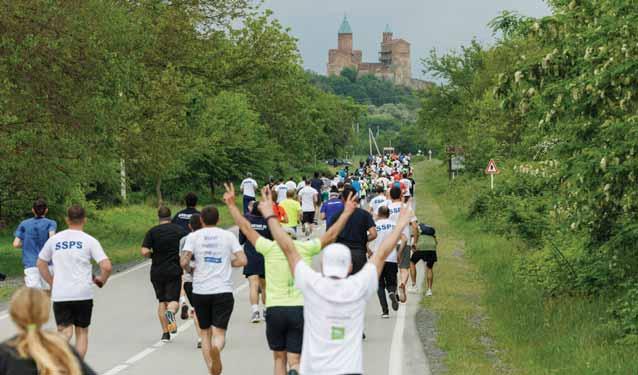
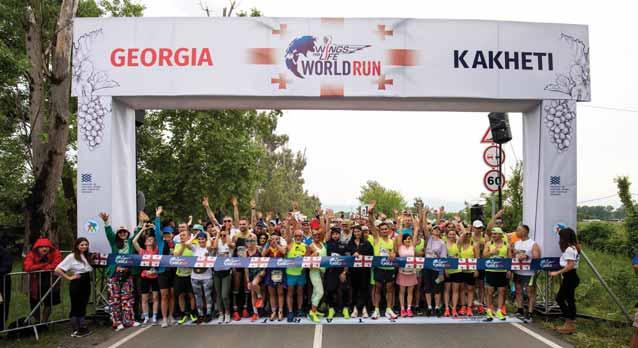
nature and their products, to engage with families and children, have fun, network, and spend an entire day experiencing all kinds of positive emotions. Additionally, it unifies the entire planet all at once, despite a variety of weather conditions and geographic regions- rain or shine, urban or natural. The Wings for Life World Run is an opportunity to celebrate how the people of Earth come together with the idea of running for spine injury treatment. It is a day of enormous energy, free from stress, not harming health but instead bringing happiness.
The Kakheti Wings for Life World Run is a place for kids zones, concerts, food markets, picnic areas, and horseback riding opportunities. The 2023 run saw some environmental awareness-raising by encouraging runners and visitors to recycle their plastic water bottles in special boxes provided by first-in-theworld Georgian eco-friendly USB cable manufacture company TENE. Which is rapidly expanding and astonishing all with its social waste management and recycling culture. They even made a big deal out of the fact that most paper cups
contain plastic, making businesses rethink their policies.
The World Run initiative from Wings for Life gives each country the freedom to use their creativity and traditions while also giving space for various businesses to promote changes, such as protecting the environment, promoting higher democracy, etc. in parallel with the event.
In Georgia, the 2023 Wings for Life was outstanding. Dominika Stelmach, a runner from Poland, took third place in the Wings for Life World Run out of the 5310 participants who enrolled in it. Dominika chose Georgia to run in because she had seen the country's beautiful landscapes

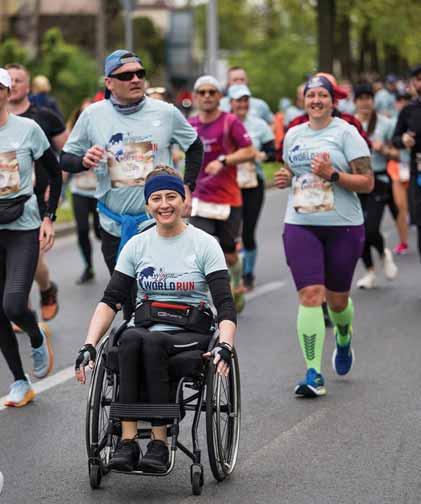
and had heard about the Georgian hills, as well as, of course, the friendship between the Polish and Georgian people. Not only is Wings for Life interactive, but it also combines cortisol, dopamine, and adrenalin for pleasure. I'm pleased to learn that my country has contributed to this significant charitable endeavor by helping raise 5.8 million Euros so far. Three global winners came out of the Georgia Run: Dominika Stelmach (49 km), Levan Chokheli (55.21 km), and wheelchair runner Nini Darbaidze (4.7 km), who completed the race for the first time while carrying the message "Never Give Up" on her wheelchair.
Photos from the Wings for Life FB page.
PUBLISHER & GM George Sharashidze
COMMERCIAL DEPARTMENT
Commercial Director: Iva Merabishvili
Marketing Manager: Natalia Chikvaidze
EDITORIAL DEPARTMENT:
Editor-In-Chief: Katie Ruth Davies
Journalists: Ana Dumbadze, Vazha Tavberidze, Tony Hanmer, Emil Avdaliani, Nugzar B. Ruhadze, Michael Godwin, Ketevan Skhirtladze, Mariam Mtivlishvili, Erekle Poladishvili
Photographer: Aleksei Serov
Website Editor: Katie Ruth Davies
Layout: Misha Mchedlishvili
Webmaster: Sergey Gevenov
Circulation Managers: David Kerdikashvili, David Djandjgava
ADDRESS 1 Melikishvili Str. Tbilisi, 0179, Georgia
Tel.: +995 32 229 59 19
E: info@georgiatoday.ge
F: GeorgiaToday
ADVERTISING & SUBSCRIPTION +995 555 00 14 46
E-mail: marketing@georgiatoday.ge
Reproducing material, photos and advertisements without prior editorial permission is strictly forbidden. The author is responsible for all material. Rights of authors are preserved. The newspaper is registered in Mtatsminda district court.
Reg. # 06/4-309
GEORGIA TODAY MAY 12 - 18, 2023 11 SPORTS GEORGIA TODAY
BLOG BY MARIAM AVAKOVA
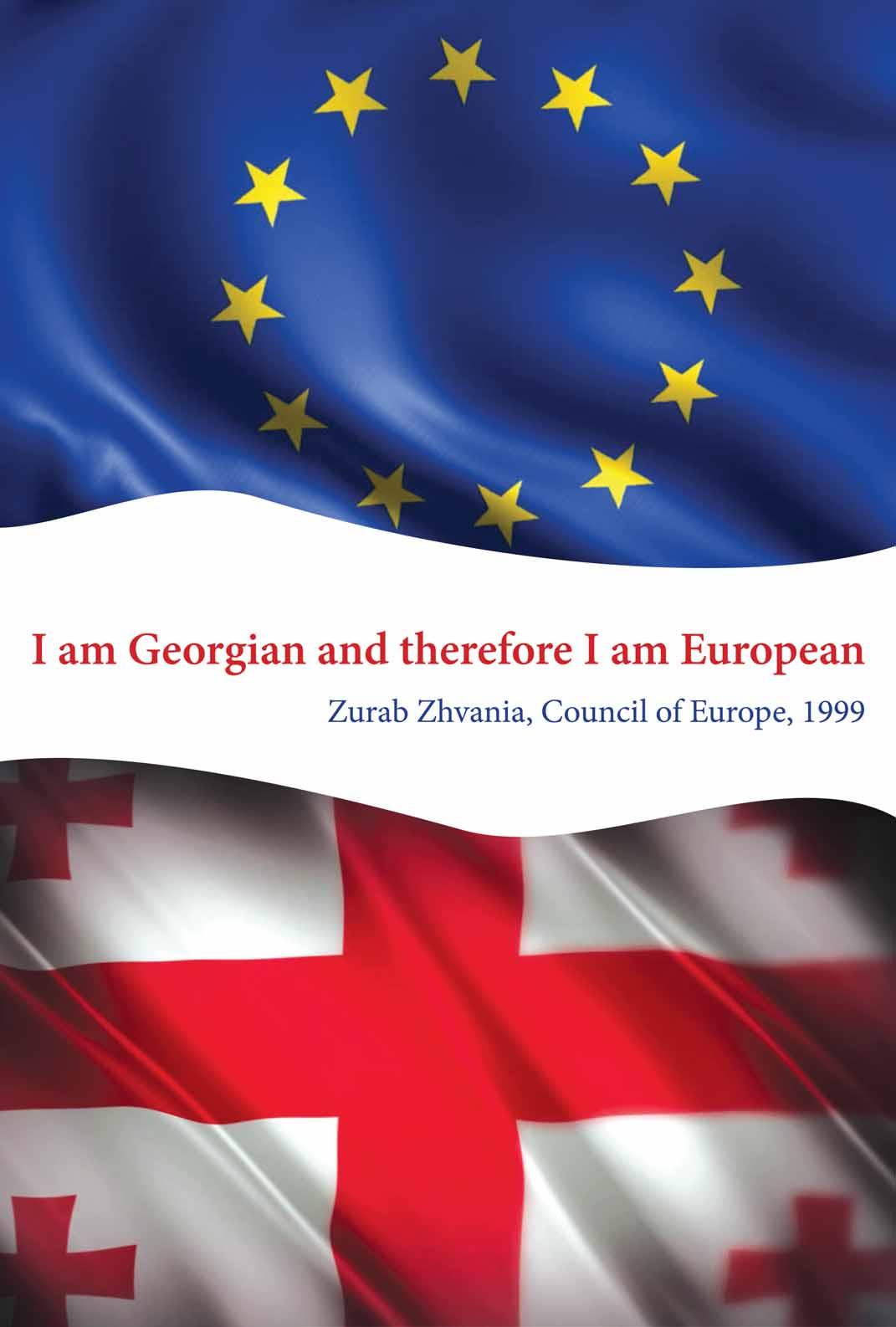





 COMPILED BY ANA DUMBADZE
COMPILED BY ANA DUMBADZE






 BY ANA DUMBADZE
BY ANA DUMBADZE




 BY KATIE RUTH DAVIES
BY KATIE RUTH DAVIES









